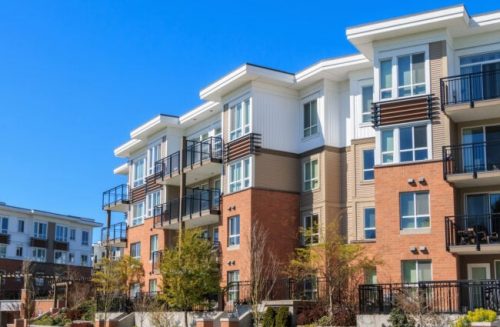Here’s What Rising Rent Prices Mean for the Housing Market

Surging rent costs are squeezing renters into lower-priced abodes and taking a toll on the housing market as a whole.
Alongside increasing home costs and higher mortgage rates, rent costs are also rising. This makes it more difficult for the average homebuyer or tenant to find a suitable home at a reasonable price. In its Multifamily Outlook Report, the Federal Home Loan Mortgage Corporation, better known as “Freddie Mac,” predicts rent will continue to increase throughout 2022. The rental and housing markets are inextricably intertwined, and factors that affect one will also impact the other. What does this mean for those looking to rent or buy?
Long-Time Renters May Want to Purchase
Everyone knows a few long-term renters who’ve shown no interest in buying a house—until now. When rent skyrockets, savvy renters begin to evaluate the commitment and costs associated with homeownership (maintenance, repairs, and property taxes, to name a few) against the growing percentages of their paychecks spent on rent. Renters who are thinking about becoming homeowners should consult with a mortgage lender and a real estate agent as soon as possible—optimally, months before their lease ends—for the best shot at finding a home in today’s competitive housing market.
Fewer Low-Cost Rentals to Choose From
As rents increase, tenants looking for affordable places to live tend to be less picky, signing leases on second-rate rentals they would have passed up in more normal times. A lack of reasonably priced rentals can result in families living in units where multiple family members must share bedrooms. Limited rental availability also leads to tenants subletting one or more rooms to help pay otherwise-unaffordable rent. On the flip side, more high-end rentals are available, but the percentage of tenants who can afford them is relatively small.
Multifamily Housing Starts are Increasing
During the pandemic, many who could afford to move out of multifamily or apartment housing to single-family housing did so, and rural communities saw an increase in population. However, that trend is starting to reverse—more people are moving back to high-density metropolises, which is creating strong demand for new multifamily housing. In 2021, investors financed a record number of multifamily housing starts, and Freddie Mac predicts the trend will continue. While the additional number of units won’t immediately offset high rent prices, they will likely slow down the rapid rent increases within a year or two.
Higher Rent Reduces Down Payment Savings
Temporary tenants, or those who are currently renting while trying to save up a down payment to buy a house, may find they have to rent longer as more of their intended savings goes toward their lease costs. Many renters are thus waiting longer to start shopping for a home to buy. What’s even more frustrating is that as rent increases, home values are also climbing, which means renters will need to save up more money than they once did to meet a 15- or 20-percent conventional loan down payment requirement.
Staying Put May Be a Good Option
According to Freddie Mac, property owners are more likely to increase new rents than renewal rents. In 2021, property owners increased rents for new tenants an average of 17 percent throughout the year, while rent increases for those renewing their leases rose only an average of 6.2 percent in the same period. Those planning to move from one rental home to another would be wise to stay in their current rental a while longer to (hopefully) avoid a sizable rent increase.
As the Housing Shortage Eases, Rent Increases Should Slow
After the housing crisis of 2008, many contractors stopped building houses on speculation, which meant that fewer homes were available to buy when the pandemic hit. The lack of houses for sale drove up the cost of homes, but it also drove up rent costs because affordable rentals were soon in higher demand. An increase in the construction of new homes—which is currently happening—will ease the housing shortage, but it may take a few years. When houses are in greater supply, temporary renters will buy homes, reducing the squeeze on the rental market. Rent costs probably won’t drop immediately, but they should stop increasing at such a quick rate.
See more at…https://www.bobvila.com/articles/rising-rent-prices-affects-housing-market/
